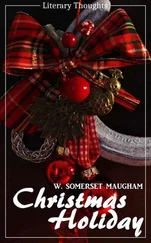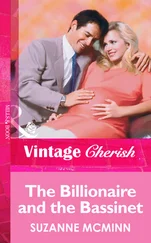Somerset Maugham - The Moon and Sixpence
Здесь есть возможность читать онлайн «Somerset Maugham - The Moon and Sixpence» весь текст электронной книги совершенно бесплатно (целиком полную версию без сокращений). В некоторых случаях можно слушать аудио, скачать через торрент в формате fb2 и присутствует краткое содержание. Жанр: Классическая проза, на английском языке. Описание произведения, (предисловие) а так же отзывы посетителей доступны на портале библиотеки ЛибКат.
- Название:The Moon and Sixpence
- Автор:
- Жанр:
- Год:неизвестен
- ISBN:нет данных
- Рейтинг книги:5 / 5. Голосов: 1
-
Избранное:Добавить в избранное
- Отзывы:
-
Ваша оценка:
- 100
- 1
- 2
- 3
- 4
- 5
The Moon and Sixpence: краткое содержание, описание и аннотация
Предлагаем к чтению аннотацию, описание, краткое содержание или предисловие (зависит от того, что написал сам автор книги «The Moon and Sixpence»). Если вы не нашли необходимую информацию о книге — напишите в комментариях, мы постараемся отыскать её.
The Moon and Sixpence — читать онлайн бесплатно полную книгу (весь текст) целиком
Ниже представлен текст книги, разбитый по страницам. Система сохранения места последней прочитанной страницы, позволяет с удобством читать онлайн бесплатно книгу «The Moon and Sixpence», без необходимости каждый раз заново искать на чём Вы остановились. Поставьте закладку, и сможете в любой момент перейти на страницу, на которой закончили чтение.
Интервал:
Закладка:
But it was Blanche who most surprised me. She proved herself not only a capable, but a devoted nurse. There was nothing in her to remind you that she had so vehemently struggled against her husband's wish to bring Strickland to the studio. She insisted on doing her share of the offices needful to the sick. She arranged his bed so that it was possible to change the sheet without disturbing him. She washed him. When I remarked on her competence, she told me with that pleasant little smile of hers that for a while she had worked in a hospital. She gave no sign that she hated Strickland so desperately. She did not speak to him much, but she was quick to forestall his wants. For a fortnight it was necessary that someone should stay with him all night, and she took turns at watching with her husband. I wondered what she thought during the long darkness as she sat by the bedside. Strickland was a weird figure as he lay there, thinner than ever, with his ragged red beard and his eyes staring feverishly into vacancy; his illness seemed to have made them larger, and they had an unnatural brightness.
"Does he ever talk to you in the night?" I asked her once.
"Never."
"Do you dislike him as much as you did?"
"More, if anything."
She looked at me with her calm gray eyes. Her expression was so placid, it was hard to believe that she was capable of the violent emotion I had witnessed.
"Has he ever thanked you for what you do for him?"
"No," she smiled.
"He's inhuman."
"He's abominable."
Stroeve was, of course, delighted with her. He could not do enough to show his gratitude for the whole-hearted devotion with which she had accepted the burden he laid on her. But he was a little puzzled by the behaviour of Blanche and Strickland towards one another.
"Do you know, I've seen them sit there for hours together without saying a word?"
On one occasion, when Strickland was so much better that in a day or two he was to get up, I sat with them in the studio. Dirk and I were talking. Mrs. Stroeve sewed, and I thought I recognised the shirt she was mending as Strickland's. He lay on his back; he did not speak. Once I saw that his eyes were fixed on Blanche Stroeve, and there was in them a curious irony. Feeling their gaze, she raised her own, and for a moment they stared at one another. I could not quite understand her expression. Her eyes had in them a strange perplexity, and perhaps -but why? -alarm. In a moment Strickland looked away and idly surveyed the ceiling, but she continued to stare at him, and now her look was quite inexplicable.
In a few days Strickland began to get up. He was nothing but skin and bone. His clothes hung upon him like rags on a scarecrow. With his untidy beard and long hair, his features, always a little larger than life, now emphasised by illness, he had an extraordinary aspect; but it was so odd that it was not quite ugly. There was something monumental in his ungainliness. I do not know how to express precisely the impression he made upon me. It was not exactly spirituality that was obvious, though the screen of the flesh seemed almost transparent, because there was in his face an outrageous sensuality; but, though it sounds nonsense, it seemed as though his sensuality were curiously spiritual. There was in him something primitive. He seemed to partake of those obscure forces of nature which the Greeks personified in shapes part human and part beast, the satyr and the faun. I thought of Marsyas, whom the god flayed because he had dared to rival him in song. Strickland seemed to bear in his heart strange harmonies and unadventured patterns, and I foresaw for him an end of torture and despair. I had again the feeling that he was possessed of a devil; but you could not say that it was a devil of evil, for it was a primitive force that existed before good and ill.
He was still too weak to paint, and he sat in the studio, silent, occupied with God knows what dreams, or reading. The books he liked were queer; sometimes I would find him poring over the poems of Mallarme, and he read them as a child reads, forming the words with his lips, and I wondered what strange emotion he got from those subtle cadences and obscure phrases; and again I found him absorbed in the detective novels of Gaboriau. I amused myself by thinking that in his choice of books he showed pleasantly the irreconcilable sides of his fantastic nature. It was singular to notice that even in the weak state of his body he had no thought for its comfort. Stroeve liked his ease, and in his studio were a couple of heavily upholstered arm-chairs and a large divan. Strickland would not go near them, not from any affectation of stoicism, for I found him seated on a three-legged stool when I went into the studio one day and he was alone, but because he did not like them. For choice he sat on a kitchen chair without arms. It often exasperated me to see him. I never knew a man so entirely indifferent to his surroundings.
Chapter XXVII
Two or three weeks passed. One morning, having come to a pause in my work, I thought I would give myself a holiday, and I went to the Louvre. I wandered about looking at the pictures I knew so well, and let my fancy play idly with the emotions they suggested. I sauntered into the long gallery, and there suddenly saw Stroeve. I smiled, for his appearance, so rotund and yet so startled, could never fail to excite a smile, and then as I came nearer I noticed that he seemed singularly disconsolate. He looked woebegone and yet ridiculous, like a man who has fallen into the water with all his clothes on, and, being rescued from death, frightened still, feels that he only looks a fool. Turning round, he stared at me, but I perceived that he did not see me. His round blue eyes looked harassed behind his glasses.
"Stroeve," I said.
He gave a little start, and then smiled, but his smile was rueful.
"Why are you idling in this disgraceful fashion?" I asked gaily.
"It's a long time since I was at the Louvre. I thought I'd come and see if they had anything new."
"But you told me you had to get a picture finished this week."
"Strickland's painting in my studio."
"Well?"
"I suggested it myself. He's not strong enough to go back to his own place yet. I thought we could both paint there. Lots of fellows in the Quarter share a studio. I thought it would be fun. I've always thought it would be jolly to have someone to talk to when one was tired of work."
He said all this slowly, detaching statement from statement with a little awkward silence, and he kept his kind, foolish eyes fixed on mine. They were full of tears.
"I don't think I understand," I said.
"Strickland can't work with anyone else in the studio."
"Damn it all, it's your studio. That's his lookout."
He looked at me pitifully. His lips were trembling.
"What happened?" I asked, rather sharply.
He hesitated and flushed. He glanced unhappily at one of the pictures on the wall.
"He wouldn't let me go on painting. He told me to get out."
"But why didn't you tell him to go to hell?"
"He turned me out. I couldn't very well struggle with him. He threw my hat after me, and locked the door."
I was furious with Strickland, and was indignant with myself, because Dirk Stroeve cut such an absurd figure that I felt inclined to laugh.
"But what did your wife say?"
"She'd gone out to do the marketing."
"Is he going to let her in?"
"I don't know."
I gazed at Stroeve with perplexity. He stood like a schoolboy with whom a master is finding fault.
"Shall I get rid of Strickland for you?" I asked.
He gave a little start, and his shining face grew very red.
"No. You'd better not do anything."
He nodded to me and walked away. It was clear that for some reason he did not want to discuss the matter. I did not understand.
Читать дальшеИнтервал:
Закладка:
Похожие книги на «The Moon and Sixpence»
Представляем Вашему вниманию похожие книги на «The Moon and Sixpence» списком для выбора. Мы отобрали схожую по названию и смыслу литературу в надежде предоставить читателям больше вариантов отыскать новые, интересные, ещё непрочитанные произведения.
Обсуждение, отзывы о книге «The Moon and Sixpence» и просто собственные мнения читателей. Оставьте ваши комментарии, напишите, что Вы думаете о произведении, его смысле или главных героях. Укажите что конкретно понравилось, а что нет, и почему Вы так считаете.










